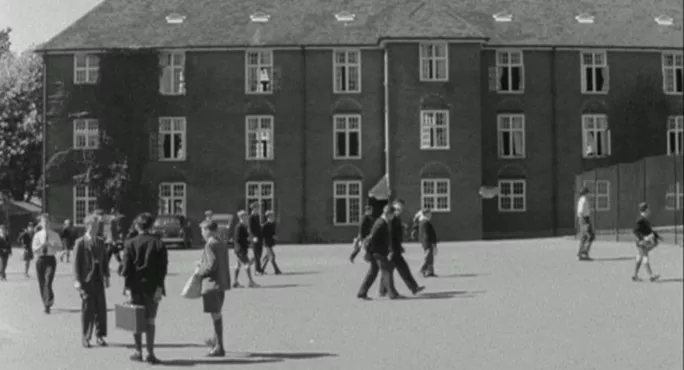- Home
- ‘The new education secretary must understand that grammar schools work against social mobility’
‘The new education secretary must understand that grammar schools work against social mobility’

Justine Greening becomes the 33rd secretary of state for education since 1944 - an average of 2.2 years each. Nicky Morgan came in just below average, having served for exactly two years. This followed Michael Gove’s term of just over 4 years, which made him the second-longest-serving after Keith Joseph, who held the role for 4 years and 8 months between 1981 and 1986. Others have had much shorter terms of office, from Richard Law who served just two months in 1945 at the end of Churchill’s term as prime minister.
Not everyone finds statistics interesting, but these statistics matter, because a big part of the problem for the education service in England has been the frequency with which ministers come and go, each wanting to put their own stamp on the job, and each knowing that they are likely to have only a short time in which to make their mark.
Constant revolution
An excess of change is therefore a built-in part of the political system in education. Yet, even when a new secretary of state comes from a different political party, the continuities often outweigh the changes of direction. For example, the past 22 secretaries of state have resisted demands for an increase in the number of grammar and secondary modern schools in favour of a comprehensive system, realising that a modern society needs a well-educated workforce. The days of the well-qualified workforce elite and the poorly educated underclass are long gone - and education secretaries of both parties have recognised this.
Graham Brady, fresh from his exposure as chairman of the 1922 Committee overseeing the election of the new prime minister, has reiterated his long-held and out-of-date view that there should be more grammar and secondary modern schools (although he seems to have forgotten to mention the latter). Ms Greening has said that she is open-minded about increasing the number of grammar schools, thus rekindling a debate that should have been confined to the Conservatives’ back benches long ago.
I hope she is open to the argument that a grammar and secondary modern school system is very unpopular with voters, which is why practically no local areas have tried to reintroduce selective education; that grammar schools work against social mobility, with only 3 per cent of their pupils receiving free school meals, compared with 18 per cent of all pupils; and that the best education jurisdictions in the world have comprehensive secondary school systems.
Background matters
The background of education ministers matters, too. Ms Greening is only the third education secretary to have attended a school other than a grammar or independent school, with two of her predecessors having been at Eton (Edward Boyle and Quintin Hogg), two at Harrow (Geoffrey Lloyd and Keith Joseph) and two at Nottingham High School (Ken Clarke and Ed Balls). Only George Tomlinson, whose schooling ended at the age of 12, and David Blunkett, who attended the Royal National College for the Blind, were exceptions to the grammar and independently educated majority.
Every new secretary of state brings to the role the experiences of their own schooling and Ms Greening’s education at Oakwood Comprehensive School, Rotherham, surely prepares her better than most - although a visit to her old school will soon illustrate for her how much comprehensive education has changed since she was at Oakwood in the 1980s. Her economics degree from the University of Southampton makes her an exception to the general rule of Oxbridge-educated education secretaries, too.
‘Events, dear boy, events’
In last week’s blog, I set out 10 education priorities for the incoming prime minister. (Is it really only five days since Theresa May took office? A week is indeed a long time in politics.) While these 10 items are the most important issues for the new education secretary to address, Harold Macmillan’s famous dictum of “events, dear boy, events” will dominate much of her time in office - whether to go against the Commons Education Select Committee and continue with the appointment of Amanda Spielman as chief inspector of Ofsted, an exams crisis or two in August, a shortage of pupil places and of teachers in September, Whitehall turf wars that will undoubtedly follow the prime minister’s reorganisation of government departments, post-Brexit funding of university research, and so on.
Ms Greening’s appointment has rightly been welcomed. If she is given the chance to serve up until a 2020 general election, she will be able to take things at a steadier pace than some of her predecessors, notably the hyper-active Gove, and address the issues that really need addressing. No reform for the sake of it; evidence-informed policies; policies of quality, not in quantity; no return to grammar and secondary modern schools. We wish her well and look forward to her working with the teaching profession for the benefit of all learners.
John Dunford is chair of Whole Education, a former secondary head, general secretary of the Association of School and College Leaders and national pupil premium champion. He tweets as @johndunford
(Pictured: Brighton, Hove and Sussex Grammar School in 1959)
Want to keep up with the latest education news and opinion? Follow TES on Twitter and like TES on Facebook
Keep reading for just £1 per month
You've reached your limit of free articles this month. Subscribe for £1 per month for three months and get:
- Unlimited access to all Tes magazine content
- Exclusive subscriber-only stories
- Award-winning email newsletters



